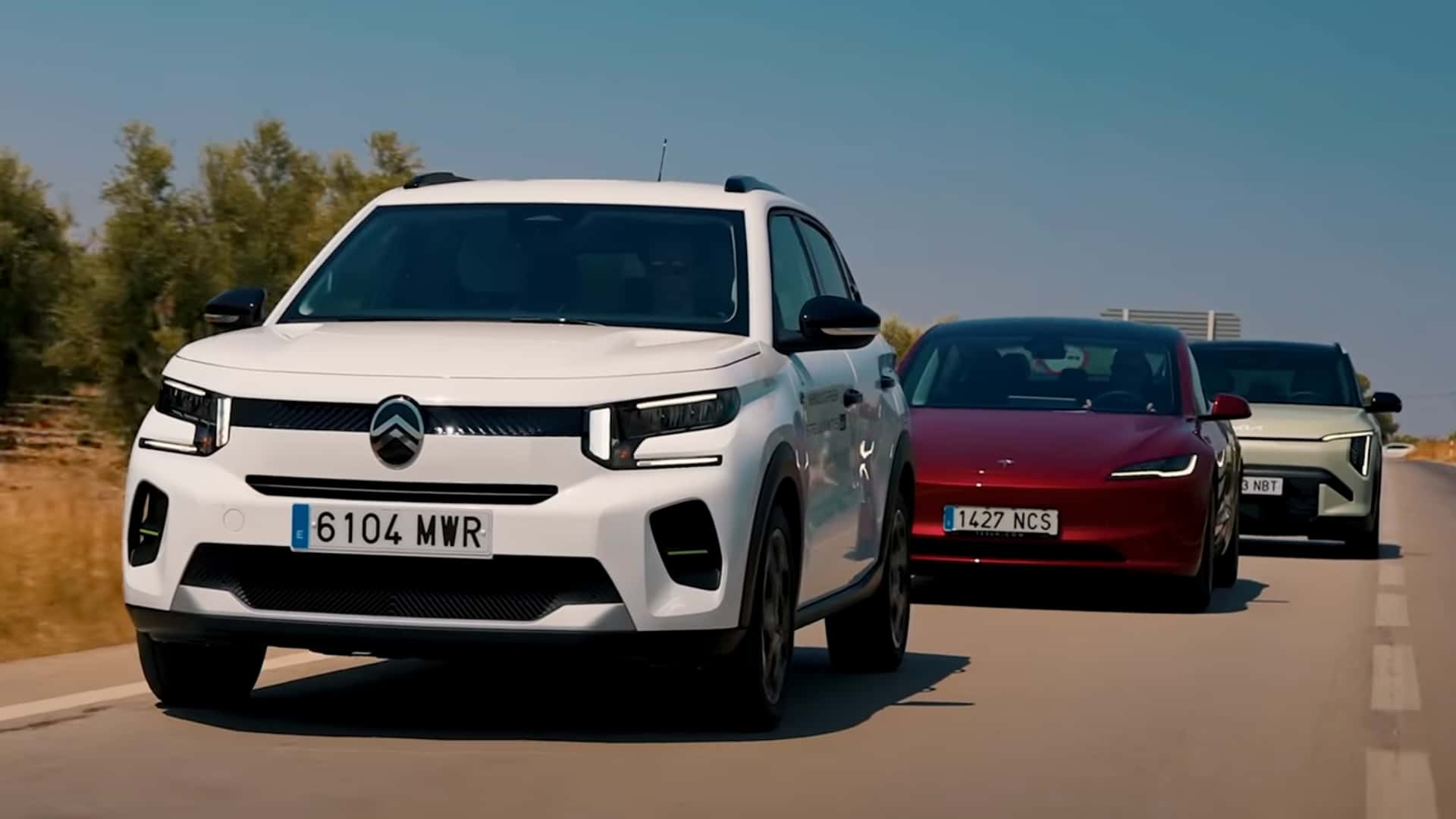
"Electric vehicles have a somewhat narrow window of ideal temperature where they operate at their most efficient. This is dictated by their lithium-ion battery packs, which are happiest at between 68°F and 77°F (20°C and 25°C), depending on their chemistry, and an EV's range will take a noticeable dive if the ambient temperature drifts too far from this ideal window."
"The cheapest was a Citroen e-C3, which had a small air-cooled 44-kilowatt-hour battery, giving it a range of 199 miles (320 km) on the WLTP test cycle. Next was a Kia EV3 with the long-range 81.4 kWh battery, granting it a WLTP range of 362 miles (582 km). The third car chosen for the test was a Tesla Model 3 Long Range dual-motor, whose 80 kWh battery pack gives it a claimed maximum range of 436 miles (702 km)."
Three electric vehicles were driven at highway speeds in southern Spain where temperatures peaked at 111°F (44°C) to measure real-world range under extreme heat. Lithium-ion battery packs perform best between 68°F and 77°F (20°C–25°C), and ranges fall noticeably when ambient temperatures move outside that window. The tested cars included a Citroen e-C3 (44 kWh, air-cooled, 199 miles WLTP), a Kia EV3 (81.4 kWh, long-range, 362 miles WLTP), and a Tesla Model 3 Long Range (80 kWh, 436 miles claimed). Highway speeds combined with extreme heat caused dramatic range reductions, with the Tesla showing the greatest discrepancy.
Read at InsideEVs
Unable to calculate read time
Collection
[
|
...
]